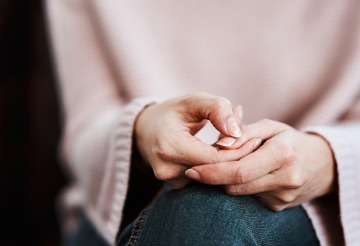

'Drunkorexia' is a word that few people have probably heard, but will more than likely have experienced, either personally or through a friend.
The term was coined after a disturbingly large number of people have taken to the practice of starving themselves during the day in a bid to save calories because they know they will be consuming alcohol in the evening. The process involves a dangerous combination of starvation, binge drinking and often binge eating after the night out.
A recent poll carried out by the drugs company, Lundbeck, found as many as 1 in 20 women are practising this act on a regular basis, and health experts are warning that it could be having an incredibly damaging effect on their health.
Why drunkorexia is so damaging
Effectively, substituting food with alcohol means the body is missing out on important nutrients. Alcohol is no replacement for food; it offers no nutritional benefits and it’s full of empty calories.
The only thing that people are doing in this scenario is depleting the body of essential vitamins and minerals because even with the pre-drinking starvation tactic, excessive drinking can still lead to weight gain. Alcohol reduces the amount of fat our body burns for energy and, no matter how little a person eats before a drinking session, it’s still likely to affect the scales the next morning.
Drinking on an empty stomach also means a person will become drunk much quicker than they normally would and are more likely to get sick as the body struggles to process the alcohol. Common side effects of drinking without eating beforehand include:
- Impaired co-ordination
- Stomach pain
- Slowed brain function
- Dizziness
- Mental confusion
- Slurred speech
- Listlessness (showing little interest in things)
- Mood swings
- Constipation
One thing that 'drunkorexics' won’t have considered is that regardless of how many or how few calories they have consumed in the run-up to a drinking session, alcohol consumption still contributes to high blood pressure, liver disease and cancer all the same.
Whilst nutritional labels have recently been placed on alcoholic beverages in a bid to help reduce the obesity crisis the UK is currently facing, psychologists are concerned that this is actually encouraging those who are already susceptible to eating disorders to swap food for alcohol.
What are the signs of drunkorexia?
- Starving yourself during the day
- Drinking to excess in the evening
- Drinking alcohol seems to affect your mood, likely because of the guilt felt for consuming the calories
- Being sick during a drinking session and then continuing to drink even more afterwards, in order to sustain high levels of intoxication
- People with bulimia are more likely to fall into the category of drunkorexia. Those with anorexia are unlikely to consume alcohol even if they have starved themselves in the day because they are still too scared of the calories found in alcohol, and they’re unlikely to want to lose control either
- A symptom of drunkorexia can be tooth decay. When we start a drinking session on an empty stomach, we’re likely to get drunk faster which means that we’re more likely to fall ill and vomit. If this is happening on a regular basis, the stomach acid will eventually start damaging your teeth, which will lead to decay
- Changes in behaviour. Drunkorexia can exacerbate moodiness as well as feelings of depression



